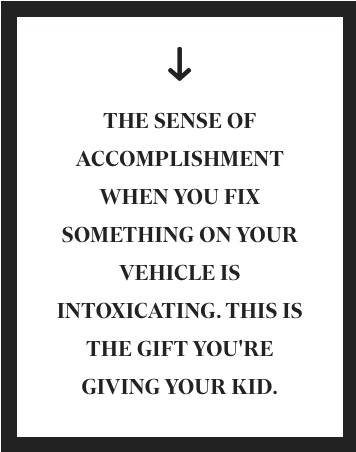We’ve talked a bit publicly about our ideation process, but to be honest, it’s constantly evolving. With every piece of content we create and promote, we gain a better understanding of what works and what doesn’t.
But part of that process has always been allowing for the creative freedom to come up with ideas and then — and most importantly — kill your darlings if they don’t meet the criteria for a good idea.
It’s not always easy; creativity is personal. But culling the list of ideas is necessary for a successful content plan.
So how do you know which ones to cut?
Ask yourself these questions.
Is the idea packed with emotion?
Make a list of all the emotions associated with your idea. If you can’t think of any, it means the idea may need some tweaking, or you need to explore it in more depth.
Even helpful how-to content is tied to emotion. Take, for example, “Give Your Kids the Gift of Automotive Repair Skills While You’re Home Together,” a genius piece of content by Car and Driver.
There’s the emotional component of it being in the context of COVID-19, yes, but it’s more than that. It’s about spending quality time with your children and teaching them crucial skills. Related emotions include love, pride, empowerment, accountability, parental responsibility and more.
And the content creators were smart enough to call out the emotional component, like they did here:

Image Credits: Fractl (opens in a new window)
The post garnered nearly 5,000 engagements on Facebook, which to me indicates it hit the sweet spot of being helpful while also tapping into our emotions.
Fractl did a study back in 2013 that explored which type of emotions were the most prevalent in viral images, and, as it turns out, positive emotions had more representation than negative ones. Most prevalent of all? Surprise. People enjoy being astonished, delighted and unexpectedly joyful. Do any of your content ideas fit this bill?
